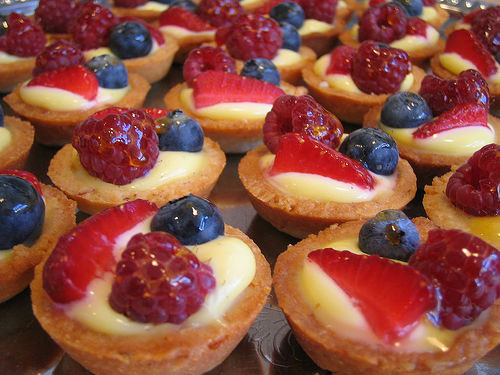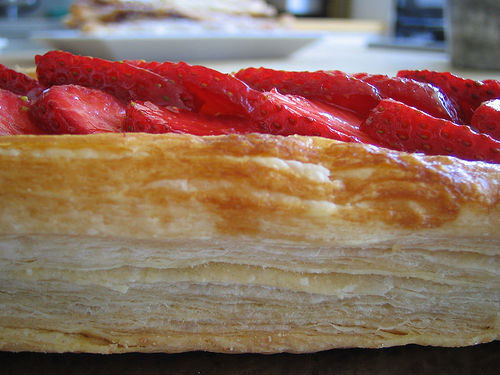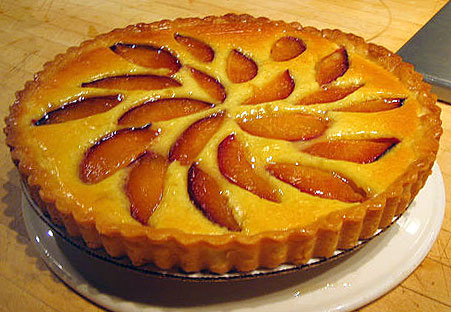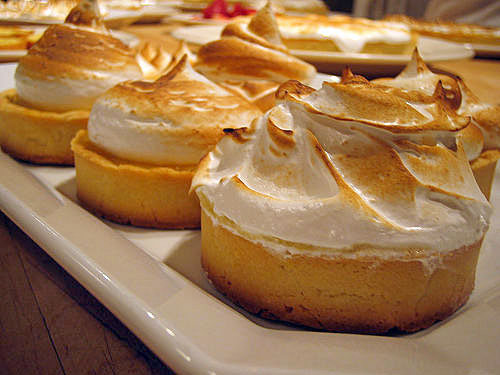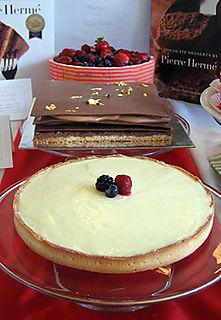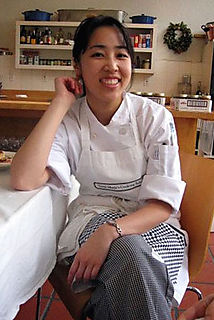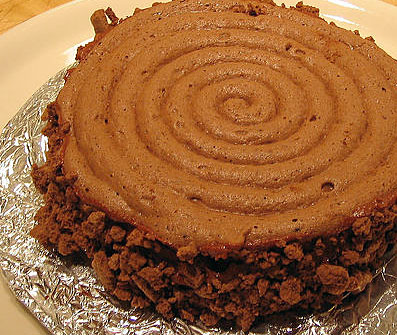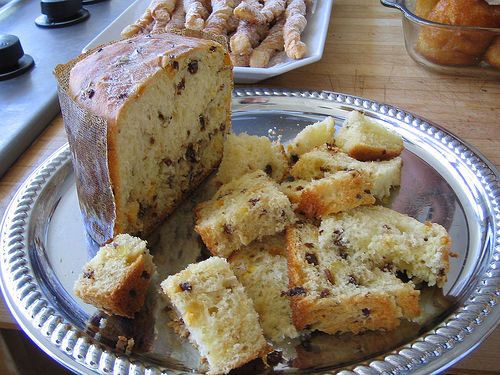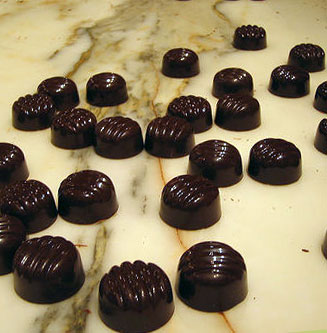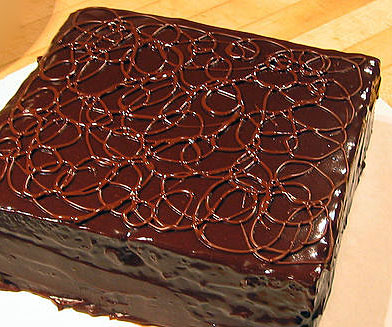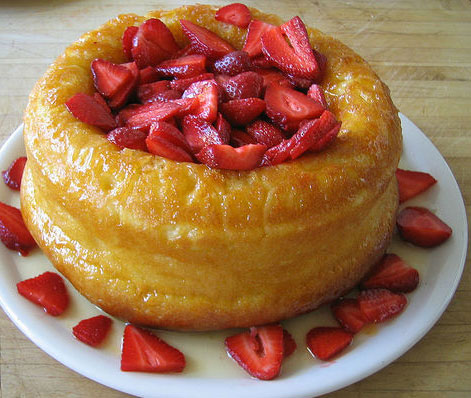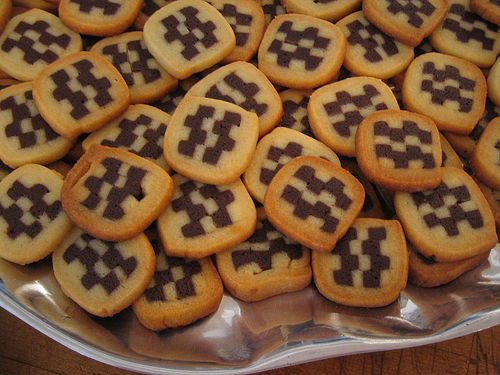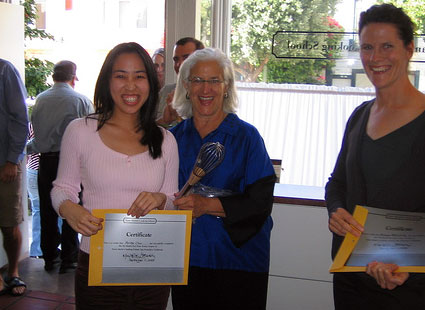I get a lot of e-mails asking about my experience with going to a professional pastry school, how to pick a good pastry school, and whether or not to go to pastry school. Excellent questions, all of them. I finally decided to gather all my thoughts together and put them down on this page. I hope you find this helpful and perhaps you’ll learn a little bit more about where pastrygirl came from!
8/17/13: Make sure to read my post about the recently launched San Francisco Cooking School – they offer both a full-time and part-time pastry program taught by James Beard award-winning pastry chef Nicole Plue.
What made you decide to go to pastry school? Where did you go to pastry school?
About 5 years ago, I was at my totally non-baking-related day job thinking about what I was going to bake that weekend. I’d been slowly moving up from my Betty Crocker and Better Homes cookbooks to fancier tomes featuring layer cakes and puff pastry, and I realized I really wanted to learn about the art of pastry – more than I was getting just by reading cookbooks at home.
I wanted someone who could critique my technique so my tart crusts would come out thin and crisp, my cake layers light and fluffy; someone who could answer my questions about what role eggs played in baking and fill in my knowledge gaps; most of all, I wanted someone to talk to who loved baking as much as I did!
I decided the answer was to take a course in pastry. I’d already taken cooking classes from various organizations but I wanted to get a full, comprehensive education this time. I went and researched the programs available in the San Francisco Bay Area, and I decided on the part-time professional pastry program at Tante Marie’s Cooking School. I chose Tante Marie for several reasons: the program was only part-time, meaning I would not have to leave my day job (and I needed that job to pay for pastry school!); when I visited the school I was impressed by the facilities, the class size, and the instructor (current students I talked to also commented positively on the program); and the cost of the program was one I could afford and which seemed commensurate with what I would gain from the program (I address this topic more specifically below).
I sent in my application with my fingers crossed and waited anxiously for a few months – when I was notified that I would be part of the new class in fall it was one of the best days of my life.
What was your experience in pastry school like?
I had a wonderful time in pastry school. I always tell people it’s one of the best things I ever did, not simply in terms of entering the pastry profession or even becoming a better baker, but as something I did for just for me. It brought me a lot of happiness to be doing something I loved, getting better at it, and being surrounded by like-minded people. That said, it was more challenging to balance a full-time job with pastry school than I expected. The pastry course was six months long, and we had class two nights a week plus every other Saturday (all day). Our classes were usually structured with a lecture/demo for the first hour and then the rest of the class time devoted to actual baking and a critique at the end. We had midterms, reports, and a final project. Long time readers will probably not be surprised to know that I did a tribute to Pierre Hermé as my final project.
My instructor, Rachel, was a very talented pastry chef who had worked under Fran Gage of San Francisco’s Pâtisserie Française. Rachel made the most beautiful wedding cakes and later left Tante Marie to open her own shop. I found her a very knowledgeable and sympathetic teacher; with a small class size of 14 people you always had the chance to speak one on one with her and get your questions answered. Our curriculum spanned all the basics of French pâtisserie, from custards to tarts to cakes to laminated doughs. We were given copious reference notes and recipes – the binders holding all that material is still the biggest “cookbook” I own!
Of course, one disadvantage of going to a part-time school was that you didn’t have as much time to bake as in a full-time course. On weekday nights when classes were four hours long, we would usually have time to bake only one or two things. Oftentimes we would leave the class at 10:30 with still steaming-hot pastries packed in our bags. Because we only had six months to cover the curriculum, out of necessity some topics could not be covered in depth as much as I would have liked – for example, we only baked bread twice. However, Rachel encouraged us to bake as much as we could at home and to bring in the results for critique and to ask her questions at any time. She also set up days near the end of the course that were “free lab” days where we could make anything we wanted that we hadn’t had the opportunity to do yet.
I really benefited a lot from having an experienced professional like Rachel to help me along and answer my questions – it helped take my baking to the next level. And not just in terms of baking technique but in learning to work in a kitchen in a clean, quick, and organized manner, and learning to work around and with other bakers. I also met some great people in class, which is what made it so fun. All my classmates were contemplating some sort of job involving pastry, which made them very hardworking, dedicated, enthusiastic, and supportive of each other. I hadn’t started my blog yet back then – I wish I had done so to document the experience!
Should I go to pastry school?
The more times I received this question, I more I realized I was hesitant to give a simple “yes” or “no” answer. What I realized I wanted was to ask in return, “Why do you want to go to pastry school?” And if the answer was, “To bec ome a pastry chef,” my next question would be, “Have you explored what the actual job of a baker is like?”
When I went to Tante Marie’s, it was not with the intention of leaving my job and becoming a baker. I wanted to learn more about pastry and I was curious about the pastry profession, but I hadn’t thought of joining it yet. As the class continued, I realized I really enjoyed pastry and working in the kitchen. I loved it enough that at the end of the class, I took a one month externship in a bakery. A year later, I left my job to work full time in a bakery.
I learned a great deal working in bakery – many things from my wonderful pastry chef, but also about what choosing pastry as a profession entailed, including long hours, intense physical labor, demanding schedules, and low pay (especially compared to my white-collar office-worker’s salary). My pastry school classmates and I were told by Rachel that if you choose pastry as a profession, you do it for the love of baking. Once you’ve been waking up at 4:30 in the morning to stand on your feet for eight hours a day for months, you really start to realize the truth of that statement!
I’m not trying to scare people or make professional pastry sound like a terrible job. On the contrary, I loved the experience. I loved being around sugar, butter, and chocolate, knowing I was being paid to bake all day long, thinking up new recipes to try, and going home knowing I had completed a satisfying day’s work. There’s a very visceral, immediate gratification to baking: you can pull a tray of cookies out of the oven and two minutes later see the expressions of delight on customers’ faces. You can look around the scrubbed-clean kitchen at the end of the day and see exactly all you’ve accomplished: it’s all there, on the racks and in the refrigerators, on the counters and in the display cases. Along with cooking, baking is one the few professions that is so clearly, and purely, dedicated to bringing happiness to people. How could that not give you the warm fuzzies?
That all being said, I would be remiss in not noting that pastry quite a demanding profession. I also can’t ignore that fact that the cost of culinary and pastry schools are rising, which is especially worrying because of the low starting pay in most pastry jobs. That’s why I hesitate to just unequivocally tell everyone who has an interest in pastry to go to pastry school, without advising them to investigate all their options and examine their goals first.
My parents/family don’t support my goal of becoming a pastry chef. What should I do?
This is tough. I probably get this kind of question more than any other one. I should become a career counselor for some of these pastry schools! What you choose to do with your life is a very personal decision, and only you know what is best for you. If you read my paragraphs above, you already know that professional pastry is a very demanding profession that is unlikely to make you rich. At the same time, this is true of many jobs out there. If you choose a career that you think will make your parents happy, or make you a lot of money, but you don’t enjoy doing it, you might still end up dissatisfied with your life. It doesn’t mean you have to become a pastry chef. Maybe it means you bake at home as a hobby. Maybe it means you take weekend classes at a local school. Or maybe it means one day you decide to make a change and try a totally new career.
This is probably a non-exciting piece of advice, but for me I think doing as much research as possible will help you make the best decision, and help convince others around you. See the question below “All right, so what do you suggest if I’m interested in a career in pastry?” Do those two things I list in my answer. If you can demonstrate to your family that you really enjoy working in a bakery and have a talent for pastry, they may be more willing to support your career choice. If you can show that you have the funds to afford pastry school, or you’re able to get a scholarship or loan, you may also feel better about making the choice. Empower yourself. There are millions of people in the world who want to be a famous chef, or a rock star, or a CEO. The ones most likely to succeed are the ones who have a plan, work hard, and keep their eye on the goal.
In the end, you have to make your own decision about what is right for you, and you have to decide if it’s important enough for you to do it with or without the approval of your loved ones. I honestly think that most people would rather see their family/children being happy doing what they love, even if it means taking chances. Don’t live your life full of regrets for what you didn’t do because you were afraid.
What kind of qualifications do I need to go to pastry school? Do I need professional experience?
Please ask the admissions department of the specific schools in which you are interested. Applications requirements can vary greatly. However, most programs do not expect previous professional experience. If you already have some baking experience, whether personal or professional, it will of course help, but professional culinary programs are meant to provide a comprehensive curriculum covering the knowledge and skills you will need to enter the industry.
Also, I’ve gotten some e-mails asking how old you have to be to go to pastry school. Many pastry schools require a high school diploma or GED to apply. I may sound old or uncool here, but really, I think you should at least finish your high school education before going to pastry school. If you are 13 years old and know that you want to be a pastry chef, that’s great! Bake at home, work part-time at a local bakery, read as many cookbooks as you can. But finish school first before going to pastry school. You’ll appreciate it in the future.
What do you think of pastry school X? Can you recommend a pastry school for me?
I get a lot of e-mails asking what I think of various other pastry programs. Believe me, if I could make a career out of going around the world testing out different pastry schools, I would do it in a heartbeat!! However, the only pastry programs I have attended have been at Tante Marie’s, and at SFBI, which I also highly recommend as a more expensive but extremely well-done full time program.
8/7/13: A new professional pastry program has started at the San Francisco Cooking School – read my new post about it. I haven’t been to this school, but it’s very well regarded and sounds like another great option to consider.
I am not comfortable evaluating or recommending pastry programs of which I do not have firsthand knowledge. If you are curious about options in your area, a couple of suggestions: go to local cookware stores like Sur la Table and ask if they know about local pastry programs. Contact community colleges and see if they have any offerings. Finally, if you have a favorite bakery or restaurant, see if you can find out if the head baker/pastry chef has any advice (Warning: do not try to walk into a restaurant kitchen in the middle of dinner service and ask to speak with the pastry chef! They will be too busy to give you their full attention! A better approach is to see if there is contact information on the website or ask the host if there is a good way to contact the chef.)
If you are curious about a specific pastry school, see the next question for what you should consider in evaluating whether that school is right for you. Especially, visit the school and see what the classes are like (know what you’re paying for!!), and ask if the school has a list of alumni you might contact to ask about their experiences.
All right, so what do you suggest if I’m interested in a career in pastry?
I highly recommend doing the following two things:
1). Research all your options and make sure you find the right school for you. Culinary schools are getting more and more expensive these days, and pricier does not always mean better. There are many excellent pastry programs that are highly regarded and charge a hefty tuition, and rightfully so for the quality of their education. There also many pastry programs at smaller schools, or at local colleges, or at other institutions, that can also teach you a great deal, at a much lower cost. If your aim is to become a pastry chef at a four-star restaurant, a top-tier pastry school may well be worth the investment. If, on the other hand, you have a less technically rigorous goal such as starting your own home business, or a specialized goal like wedding cakes or catering, you might want to examine whether you still want or need to go to one of those top-flight schools, or whether there might be alternative programs that would suit your needs. Let me note that this is not an intimation that some pastry career directions may require “lesser” educations, but more an extension of my belief that entering the pastry world should not necessarily entail taking on a large debt.
All right, financial issues aside, there are many other things to consider when choosing a pastry school. Who are the instructors? What are their qualifications? Who will your classmates be? What is the typical class makeup? What is the curriculum? How much actual lab time will you get? How will you be evaluated? What kind of certification will you get? Does the school offer job placement? If possible, go to the school and check out a few classes to see if you like the feel of the place. Even though I went to Tante Marie’s, I would still advise prospective pastry students to visit the school since Rachel no longer teaches there and I haven’t met the new instructor. And, of course, as with anything else you pursue in life, what you get out of your education is what you put into it. Tante Marie may not have been the biggest or best-known school, but all my classmates were so driven to get as much as they could out of the course, and Rachel went out of her way to be helpful and accessible, that I definitely felt I made the right choice.
2). Try interning at a bakery or a restaurant to see what the job is like. Many places will take on unpaid interns, or stagieres, as they are sometimes called. In some places you may be directed to stand in an out-of-the-way spot and watch the kitchen during busy hours; other places will let you work alongside the staff on various tasks. This is by far the best way of finding out whether you will enjoy the job or not, and I am surprised that more people don’t do this before going to culinary or pastry school. You may find out, for instance, that you enjoy working in a fast-paced kitchen plating elaborate desserts, or in a bakery making bread in the wee hours of the morning, or at a caterer’s assembling platters of delicacies. You will learn a lot of practical knowledge from being around experienced chefs you won’t get in class – my pastry chef taught me tons of tricks she had accumulated over her years of working in restaurants. And once you’ve been in a working kitchen, you’ll go to school with a much greater appreciation for what you’ll learn and what you’ll want to learn.
Whew!
I hope this little guide has answered some of the most-asked questions I get on this site. To all of you who love baking, who are contemplating pastry school, a career in pastry, or just learning more about baking, I say good luck, happy baking, and get in the kitchen as often as you can! Feel free to leave more questions or comments on this page, and I’ll answer them as quickly as possible. I’ll also probably revise and update this page as I think of more things to say or get more questions to answer!
